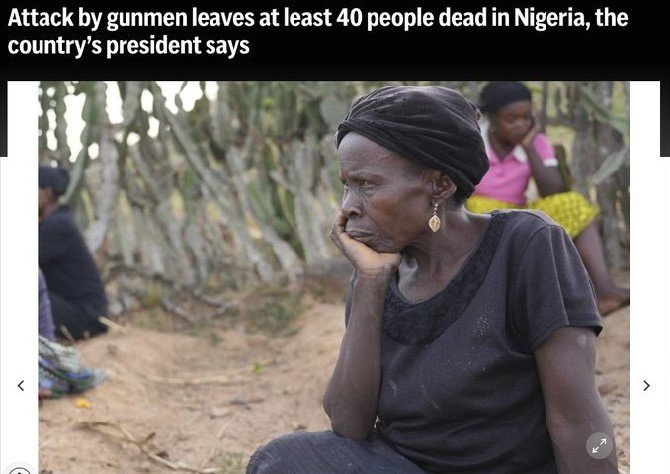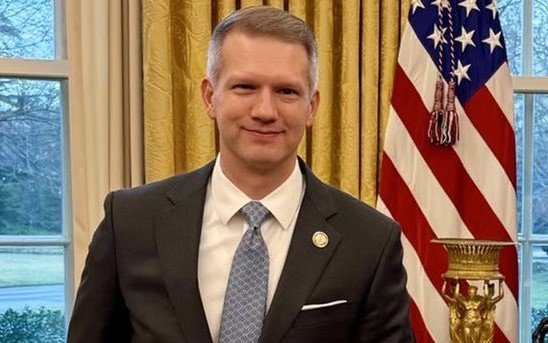A United States lawmaker has renewed allegations of large-scale killings of Christians in Nigeria, claiming that more than 7,000 have died this year alone.
Rep. Riley M. Moore made the statement during an interview with Fox News, describing the situation as a tragedy “that has been going on for decades without anyone talking about it.”
He alleged that “35 Christians are murdered per day” across Nigeria, adding that he had written to Secretary of State Antony Blinken to have the country redesignated as a Country of Particular Concern (CPC) under U.S. religious freedom laws.
Moore and Senator Ted Cruz had earlier called for the same designation, arguing that the Nigerian government has failed to protect faith-based communities from what they describe as “jihadist violence.”
Presidency Rejects Genocide Narrative
The Nigerian presidency, however, has consistently rejected such claims, describing them as misleading and politically motivated.
Presidential media aide Daniel Bwala said that while insecurity remains a challenge, it is not targeted at any religion or ethnic group.
“These are security issues that affect Nigerians of all faiths,” Bwala stated in a recent interview. “We cannot allow anyone to use religion to divide the country.”
Officials in Abuja have also pointed to joint military operations in Plateau, Benue, Kaduna, and Zamfara States as evidence of the government’s resolve to fight armed groups, regardless of their victims’ backgrounds.
Rights Group Alleges Targeted Attacks
But human rights group, the International Society for Civil Liberties and Rule of Law (Intersociety), insists the violence bears a religious character.
In a statement signed by its leadership team — Emeka Umeagbalasi, Obianuju Joy Igboeli, Chidinma Udegbunam, and Ogochukwu Obi — the organisation claimed that “at least 100 Christians have been killed and 120 abducted in the past 76 days.”
The report detailed victims by name, including children as young as six, and linked most of the killings to “Jihadist Fulani militants hiding under the guise of herdsmen.”

It also alleged that more than 1,000 Christians remain in captivity in forests around Kaduna and Niger States.
Intersociety’s data suggested that the North-Central remains the worst-hit region, followed by the North-West and North-East, with parts of the South-West, South-East, and South-South also affected.
The group further cited the National Bureau of Statistics (NBS) 2024 report, which documented 614,937 deaths from insecurity nationwide between May 2023 and April 2024, though the agency did not classify the deaths by religion.
Between Politics and Faith
The controversy has drawn renewed scrutiny from international observers and rights organisations.
Critics of the U.S. position argue that Washington’s framing risks deepening Nigeria’s religious divides, while others believe the international spotlight could force stronger domestic accountability.
Diplomatic watchers say the issue may resurface when the U.S. State Department releases its next CPC list, expected later this year. Nigeria was previously removed from the list in 2021, despite pressure from advocacy groups.
As the debate intensifies, families of victims — Christian and Muslim alike — continue to live in fear in the country’s volatile regions.
But the unanswered question remains: what and who are fuelling the killings in Nigeria – among Christians or Muslims, and can this global spotlight help end Nigeria’s endless cycle of grief?
Rate, Like 👍, Comment 💬, Share this article, Follow us on our social media handles, and Submit your own story to get featured and earn rewards!






